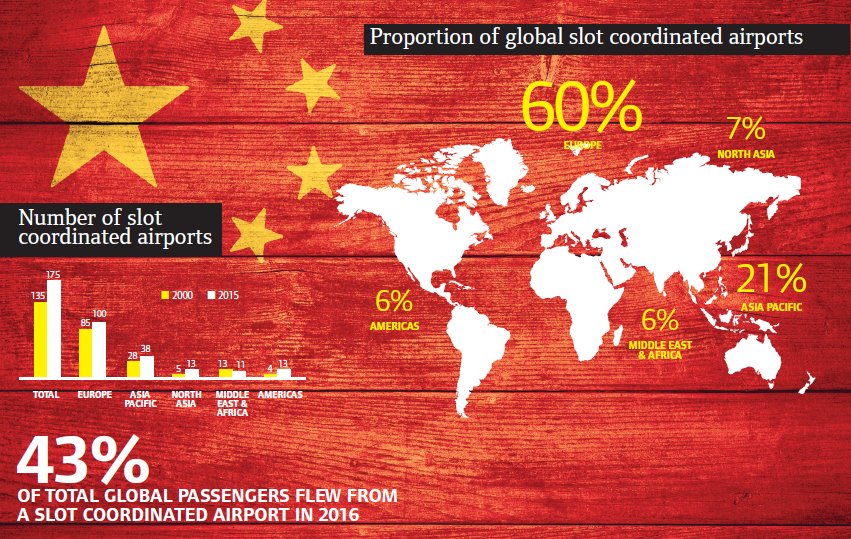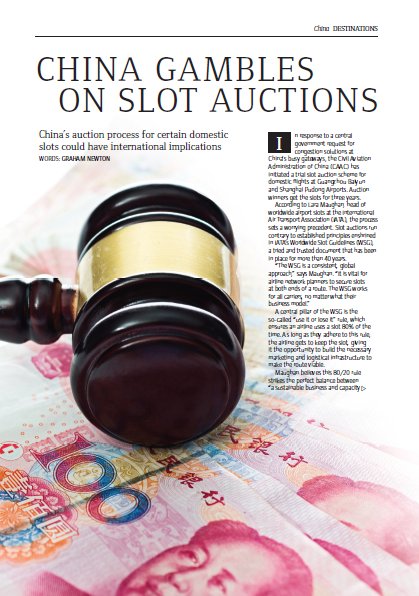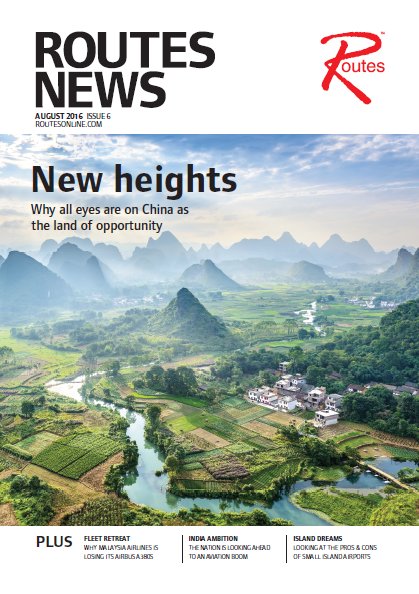In response to a central government request for congestion solutions at China’s busy gateways, the Civil Aviation Administration of China (CAAC) has initiated a trial slot auction scheme for domestic flights at Guangzhou Baiyun and Shanghai Pudong Airports. Auction winners get the slots for three years.
According to Lara Maughan, head of worldwide airport slots at the International Air Transport Association (IATA), the process sets a worrying precedent. Slot auctions run contrary to established principles enshrined in IATA’s Worldwide Slot Guidelines (WSG), a tried and trusted document that has been in place for more than 40 years.
“The WSG is a consistent, global approach,” says Maughan. “It is vital for airline network planners to secure slots at both ends of a route. The WSG works for all carriers, no matter what their business model.”
A central pillar of the WSG is the so-called “use it or lose it” rule, which ensures an airline uses a slot 80% of the time. As long as they adhere to this rule, the airline gets to keep the slot, giving it the opportunity to build the necessary marketing and logistical infrastructure to make the route viable.

Maughan believes this 80/20 rule strikes the perfect balance between “a sustainable business and capacity optimisation”. Underpinning this is the fact that the busiest airports in the world using the WSG all run in excess of 98% capacity. So while securing a slot for three years sounds comforting, there is no guarantee the same airline would win a second slot auction. An awful lot of investment would potentially go to waste as IATA estimates that only in the third year of operations would an auction-winning airline be able to turn a marginal profit.
Other challenges posed by the Chinese slot auction process include the simple fact that it is only being applied to one end of a route, and the differentiation between domestic and international slots. If a route depends on winning an auction at one end, network planning becomes a complex undertaking. And splitting up airport slots into two pools potentially denies international carriers access to capacity. For its part, CAAC has pointed out that because the slot auction only applies to domestic carriers, it is an internal issue. And the auction process has, on the surface at least, been successful and all available slots have been taken up.
WHAT IS SECONDARY TRADING?
International Airport Slot auctions are a primary allocation process not aligned to IATA’s Worldwide Slot Guidelines. Secondary trading, being practised at London’s Heathrow (and to some extent at London Gatwick Airport), is something that happens only once slots have been allocated through WSG’s free and fair process. Secondary trading is producing good results at these airports but analysis suggests it only works at severely congested gateways.
“IATA has a good relationship with CAAC and we are having open and constructive discussions,” says Maughan. “We are pointing out to CAAC that there is an international dimension to its work and that the slot auction process wouldn’t scale up. But discussions will be a marathon, not a sprint.”
China isn’t unique in straying from the WSG. Brazil and Mexico are just two of many governments that have been examining different methods of slot allocation as airports become more congested and powerful competitive pressures come into play.
Punctuality and performance are increasingly linked with slots, for example. For Maughan, this is a key issue behind the scrutiny of the WSG. “Slots are about planning,” she says, “whereas there are many issues that only crop up on a day-to-day basis, such as bad weather. The two cannot be linked.”
It is why such initiatives as airport collaborative decision making cannot be expanded to slot management. IATA and Airports Council International are in regular contact, however, in an effort to ensure the WSG continues to make sense.
“Brazil and Mexico are returning to the WSG because it is the best solution for managing slots at congested airports,” Maughan says. “It doesn’t enable or prevent market share. The WSG’s principles allow governments to fairly allocate scarce resources and airlines to build sustainable routes. Most importantly, it is a single process founded on transparency – and that transparency means all stakeholders can have faith in the WSG.”
 |
This article is modified from an original feature that appeared in... ROUTES NEWS - ISSUE 6, 2016 PLEASE CLICK HERE to view the magazine. |
 |





